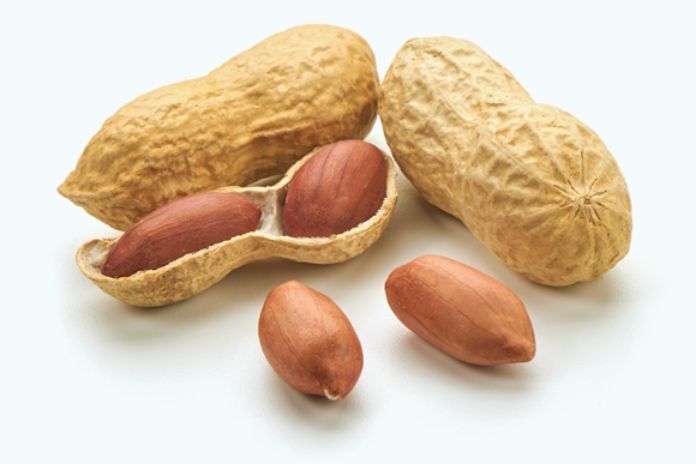Peanuts are a tasty snack that we love to nibble on, especially at aperitif time. But what are the properties of these small foods, and what are the contraindications? Peanuts are a tasty snack that we love to nibble on, especially at aperitif time, perhaps accompanied by a cool drink and in the company of friends. But what are the properties of these small foods, and what are the contraindications? Peanuts are the edible seeds of a plant of the Leguminosae family typical of Brazil.
Now cultivated worldwide, the peanut plant is exploited not only to produce the so-called peanuts but also to obtain, after pressing, the peanut oil used above all for frying. Regarding the consumption of peanuts, we must first make an important distinction: there are whole peanuts to be shelled and those ready and cut that can be filled with salt or caramelized. These are very different products as the first is decidedly more natural while the latter, obtained after industrial processes and enriched, are certainly less so.
Both whole and shelled, salted, or caramelized peanuts are first roasted. Peanuts are much more part of the food tradition than in our country and are mainly consumed in peanut butter. But did you know that this product can also be easily prepared at home? It is much healthier than ready-made and can be made with just a few ingredients and reduced salt.
But now, let’s see what the properties of peanuts are.
Ownership Of Peanuts
Peanuts offer several properties and benefits. First of all, they are a good source of vegetable proteins (they contain many amino acids), but they also provide our body with mineral salts (in particular magnesium, potassium, zinc, phosphorus, manganese, and copper), vitamins (especially vitamin E ), fiber and good fats (despite being rich in fats, the absence of cholesterol is highlighted). It is also a food particularly rich in antioxidants (polyphenols), which reduce the risk of getting sick from various diseases.
The consumption of salted peanuts indeed undermines all these properties. Excessive use of these products increases the likelihood of developing hypertension and consequently increases the cardiovascular risk. Worse still if you associate the consumption of salted peanuts with sugar, carbonated, or alcoholic drinks. The properties of peanuts have been confirmed according to which it is enough to eat a small handful of dried fruit a day to live longer.
The research was conducted on a sample of 120 thousand people, and it was found that those who ate at least 10-15 grams of walnuts or peanuts every day (the equivalent of half a handful) saw a reduction in the risk of death from some serious diseases. How the greater consumption of walnuts and peanuts also corresponds to a lower mortality rate, mainly caused by stroke. Summarizing the properties of peanuts:
- Good vegetable protein source
- Rich in minerals and vitamins
- Good fiber intake
- Antioxidants
- Cholesterol free but rich in good fats
- They reduce the risk of death, especially from cardiovascular diseases
Calories And Nutritional Values
Peanuts are a decidedly caloric dried fruit. We speak of about 600 kcal per 100 grams of the product. In the face of this, it must be said, however, by consulting the nutritional table that we report, that this dried fruit is very rich in precious minerals, proteins, fibers, fatty acids beneficial for the heart and does not contain cholesterol. To enjoy the beneficial effects of peanuts, a quantity of 20-25 grams per day is generally recommended (in the unsalted variant).
Peanuts And Children
Since it is a particularly allergenic type of dried fruit, parents are often fearful of letting their children taste peanuts for the first time. But how to insert this food in complete safety? Unlike what was previously thought, to avoid allergies, it is better to taste various foods from an early age (it is even advisable to take dried fruit during pregnancy to prevent allergies to the unborn child).
Avoiding peanuts altogether can also be counterproductive as this could cause you to become hypersensitive to the food. Since these are children, however, it is always good to hear your pediatrician’s opinion, especially if the child has already developed other allergies or suffers from eczema and dermatitis.
Contradictions Of Peanuts
The only absolute contraindication to peanut consumption is a possible allergy. In this case, we should not only take peanuts but also pay particular attention to foods that may contain them or are produced in factories where peanuts are packaged.
Warnings
Peanuts are one of the most dangerous foods for aflatoxin contamination. Always pay attention to buying quality products, such as whole peanuts. For example, the shells must be complete and healthy. If in doubt, it is always better to avoid consumption.
Also Read: What Is Vitamin E For And When To Take It?

